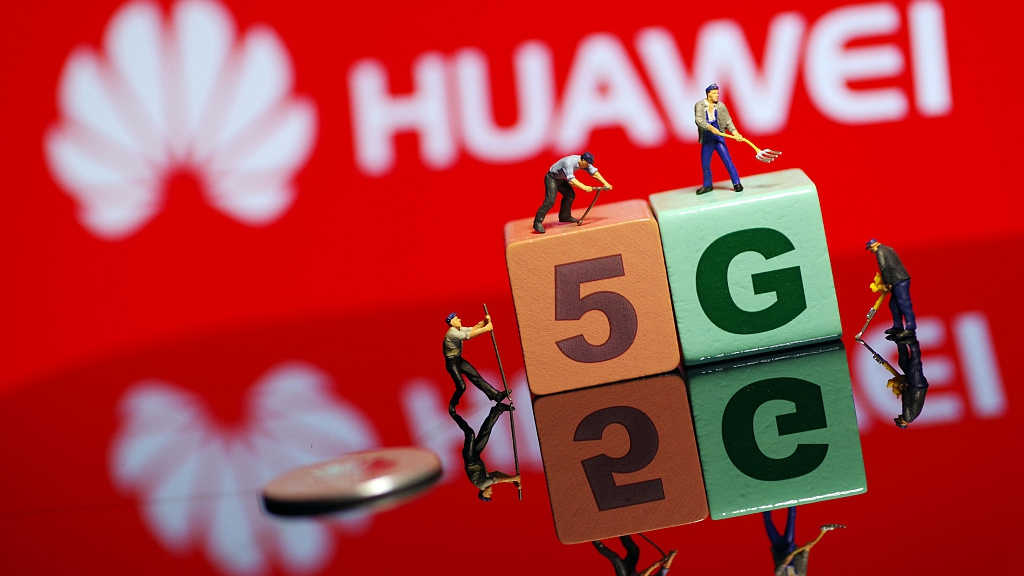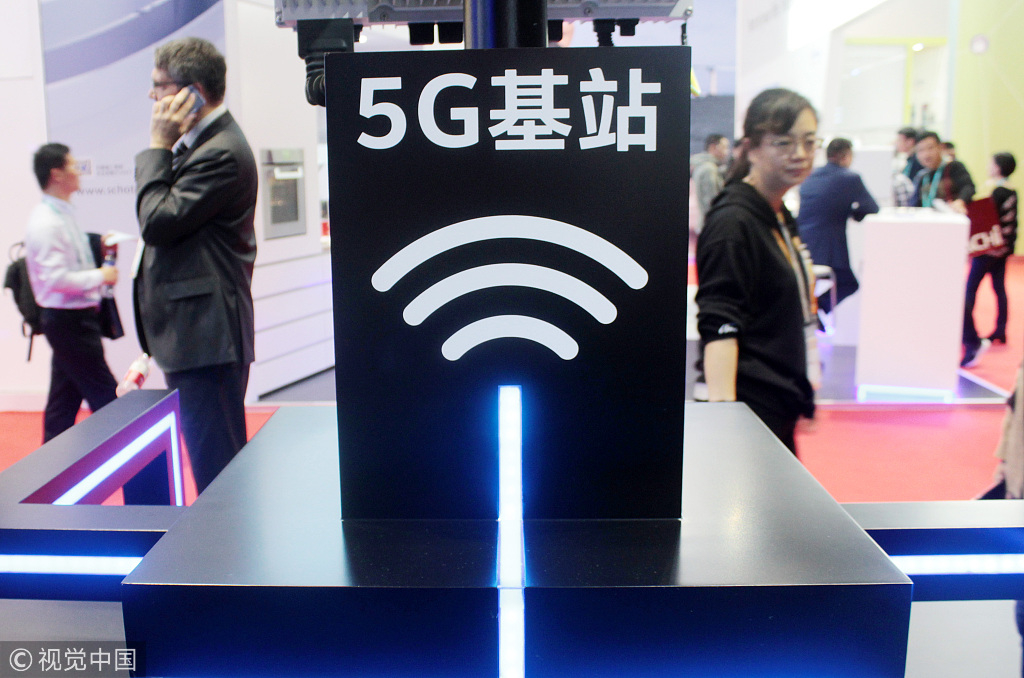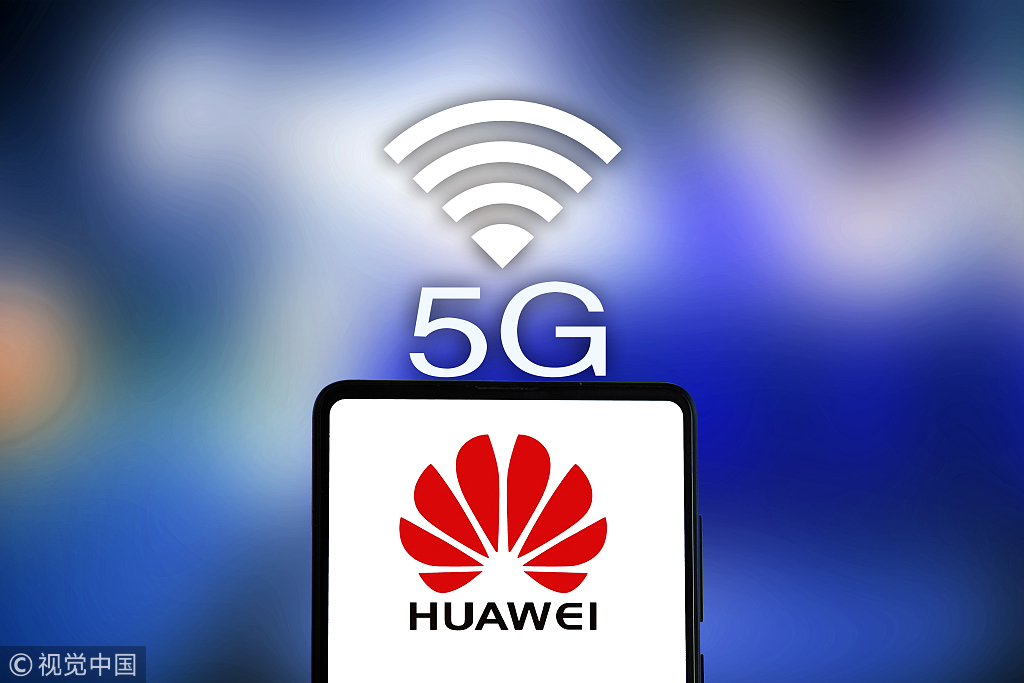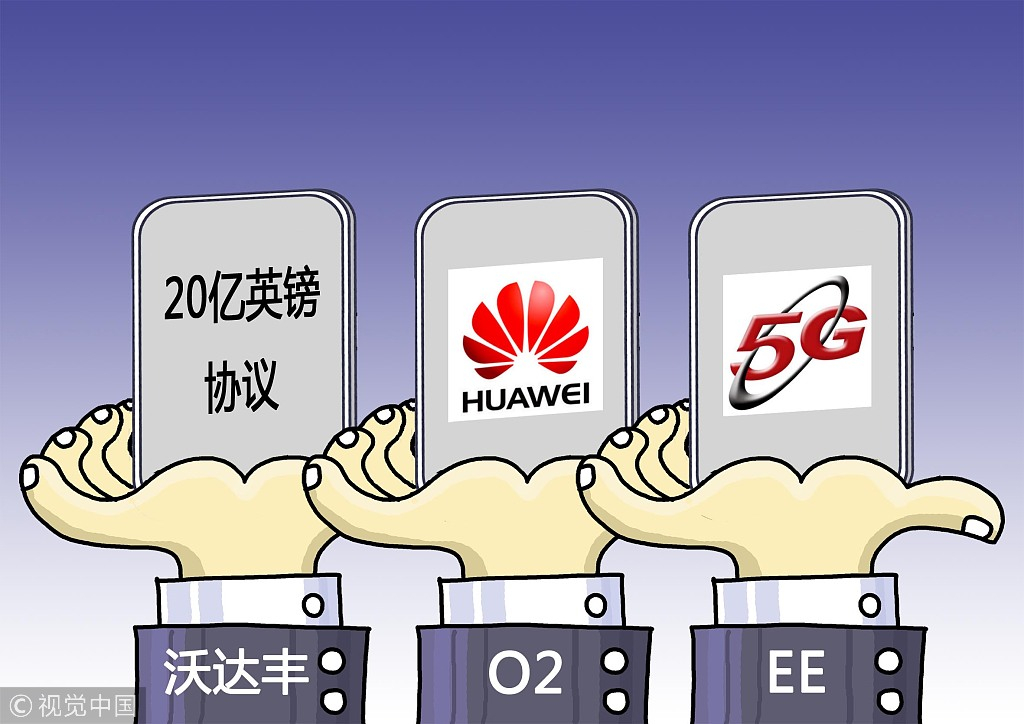
Opinion
15:11, 11-Feb-2019
Banning Huawei could be a disaster for the UK
Tom Fowdy

Editor's note: Tom Fowdy, who graduated with an MSc in Chinese Studies from Oxford University and majored in politics at Durham University, writes on the international relations of China and the Democratic People's Republic of Korea. The article reflects the author's views, and not necessarily those of CGTN.
Last week a report in the UK tabloid "The Sun" stated that the United Kingdom government had come to a decision to formally ban Huawei from participating in the construction of the country's 5G Internet networks, kowtowing to pressure from Washington whom have been forcefully attempting to curtail the Shenzhen company on a global scale.
According to the report, the ban will be implemented as part of the process of Brexit, with Parliament needing to pass notions to recodify European legislation into British law, with certain provisions on security being tweaked accordingly to ban Chinese participation in all "sensitive technologies" – thus excluding Huawei from the network.
The move however, will surely be disastrous for the country. Whilst entangled in the deadlock and uncertainty of Brexit, Britain is systemically alienating itself on multiple economic fronts in a foreign policy that is best described as reckless and self-destructive.

Expo visitors pass by a 5G mobile communication base station in Shanghai, on November 7, 2018. /VCG Photo
Expo visitors pass by a 5G mobile communication base station in Shanghai, on November 7, 2018. /VCG Photo
To throw ties with Europe in the air, and then simultaneously upset Beijing by heeding Washington's call, will not only see the UK isolated on the world stage, but also pose severe economic consequences which will see the country fall even further behind in competitiveness, technology and innovation.
Theresa May's foreign policy is chaotic, but simple. Simple of course, it in its total lack of regard for the consequences. Brexit has after all, completely undermined the country's position and strength in the world.
With the UK having alienated Europe, the prime minister decided that in order to buffer the diplomatic and economic vacuum, the answer was to get as close to Donald Trump as possible. This comes at much dismay for most of the population.
May believes that by toeing the Trump's line closely and talking up "the special relationship" in the strongest terms possible, Britain can receive the reward of a post-Brexit trade deal with the United States and everything will be rosy. This ignores the fact that such a deal not only would need negotiating from scratch, but it has also never been discussed in any serious detail. It is merely the output of a few Trump tweets, and by the time anything serious comes of it there could be a different administration in the White House entirely!

Many countries are moving to ban Huawei's 5G network. /VCG Photo
Many countries are moving to ban Huawei's 5G network. /VCG Photo
Regardless, Britain has placed itself in a position of diplomatic weakness and in turn, owes America for support considerably. Given this, we should not ignore the fact that this is a presidential administration that openly makes coercive threats if you do not agree to follow their unilateral demands, allies are not exempt.
Behind the scenes of leveraging, threats will have certainly occurred and in turn, Downing Street has finally caved to the longstanding pressure to place Huawei on the sacrificial offering table to Washington, something it indicated it was not prepared to do previously.
This indicates a noticeable and calamitous shift in the country's foreign policy position. Unlike the United States, Britain has typically pursued a much more amicable and accommodating foreign policy towards China. Previous governments have welcomed and even openly encouraged Chinese investment into the country.
Former Chancellor of the Exchequer George Osbourne touted Britain as "China's closest partner in the West," whilst David Cameron acted as a figurehead for big trade and commerce delegations between the two countries. Trade terms are favorable, with the UK holding a surplus in the provision of services to China.

A ban of Huawei's 5G network will end an era of warm, prosperous ties between the UK and China. /VCG Photo
A ban of Huawei's 5G network will end an era of warm, prosperous ties between the UK and China. /VCG Photo
Likewise, up until this "shift" occurred, the UK had no problems with China investing in infrastructure either, with the Hinkley point nuclear power plant being a notable example. As a result, Huawei's ties with the United Kingdom have also been robust. Most UK telecommunications companies rely on Huawei technology, and many had signed deals for them to be part of the UK's 5G network.
Now however, Britain has finally decided to risk everything to pacify Washington's change of mood. A ban of Huawei's 5G network will end an era of warm, prosperous ties between London and Beijing and will inevitably invite a series of negative reactions from China. This will leave Britain isolated on not one, but two economic fronts.
For a country whose GDP growth is predicted to be a mere 1.2 percent in 2019, with businesses shifting jobs abroad and cancelling investment, to escalate parallel geopolitical confrontation with two of the world's largest economies is an act of sublime naivety and self-harm.
We are a left with a future beset by soaring costs, economic stagnation, and technological regression. If Brexit was supposed to “reclaim” British sovereignty, in an ironic twist, the process has in fact undermined it, jettisoning its diplomatic power and leaving London out in the cold to the tender mercies of Washington.
(If you want to contribute and have specific expertise, contact us at opinions@cgtn.com.)

SITEMAP
Copyright © 2018 CGTN. Beijing ICP prepared NO.16065310-3
Copyright © 2018 CGTN. Beijing ICP prepared NO.16065310-3